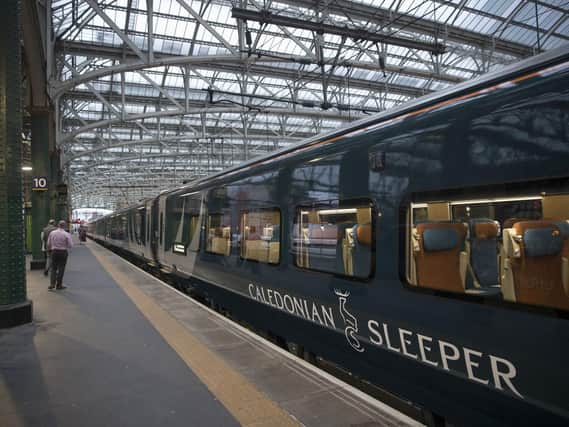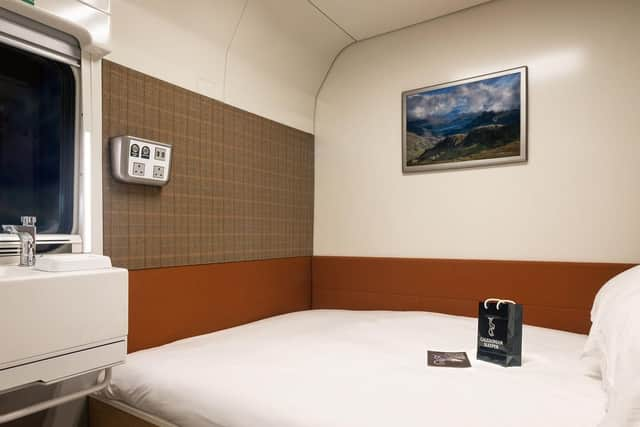Caledonian Sleeper passengers delayed hours today by latest faults


The service to Aberdeen broke down near Arbroath, while locomotive problems also held up the trains to Fort William and Inverness.
The Aberdeen train was running more than three hours late when it reached Montrose at 10am.
Advertisement
Hide AdAdvertisement
Hide AdPassengers arrived in Fort William nearly 1 hour 30 minutes late, and in Inverness nearly 1 hour 40 minutes behind schedule.
The Edinburgh and Glasgow-bound "Lowlander" train was delayed by a suspected loss of power from overhead lines at Preston.
Passengers were forced to switch to other trains in Motherwell and Carlisle.
The problem also hit the London-bound "Highlander" train from Aberdeen, Fort William and Inverness, which had combined in Edinburgh, which arrived in Euston more than two-and-a-half hours late.
Advertisement
Hide AdAdvertisement
Hide AdGlasgow-bound passenger Jane Graham tweeted: "Woken on arrival at Edinburgh to be told we were still in Preston. Front engine had failed, back engine had been primed to replace it, but failed on its way to the front.


"Anyone got a crazy tale about getting to their destination on time on the Cal Sleeper?
"Now dumped in Carlisle & had to buy a ticket to get to Glasgow!
"This train is absolutely cursed."
Advertisement
Hide AdAdvertisement
Hide AdFellow passenger Bob Cockshott tweeted: "Heading to Edinburgh on Caledonian Sleeper - comfortable and civilised but so unreliable.
"Broke down 3am at Preston; now on TransPennine Express and will be late for meeting."
Months of glitches
The problems are the latest of a catalogue to have been suffered by passengers since a new £150 million fleet with double beds and showers were introduced in April.
However, today's faults do not appear to be related to the new carriages, but the locomotives which haul them, and power problems which are the responsibility of Network Rail.
Advertisement
Hide AdAdvertisement
Hide AdLiberal Democrat transport spokesman Mike Rumbles said: “The new luxury sleeper service has been nothing but a nightmare for passengers.
"Following months and months of delay to the introduction of the new fleet, the service has been plagued with problems and passenger complaints have skyrocketed.
"Now the trains cannot even be relied upon to reach their destination.
“Tickets are not cheap and many customers use the service to connect to other transport or expect or be able to go straight to work.
Advertisement
Hide AdAdvertisement
Hide Ad"This breakdown has caused severe disruption to trains across the country and it shows that neither the Scottish Government nor our rail operators are capable of managing and running an efficient rail network.”
Magnus Conn, operations director for Caledonian Sleeper, which is run by Serco said: “We would like to apologise to guests who were travelling on last night’s services who were involved in the delays that took place across our Highlander and Lowlander routes.
"The two delays at Preston are suspected to have been caused by issues with overhead line power which we’re working with Network Rail to investigate.
"The delay near Montrose was caused by an engine failure.
"The delay on the Inverness and Fort William-bound service was caused by a locomotive issue.
Advertisement
Hide AdAdvertisement
Hide Ad"We are working hard to ensure that all guests reach their destination as soon as possible.”
Network Rail said its overhead line engineers were "investigating if the infrastructure contributed to the failure of the train".